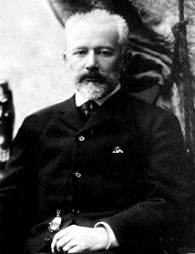GENESIS – Pioneers of Art Rock
 The development of rock music in general and its intellectual direction in particular is impossible to imagine without the British band Genesis. It was she who turned into the channel of epic art the avant-garde progressive rock, which was opened by Pink Floyd. If other groups followed the direct connection of classical motifs with modern music, Genesis became the pioneers of art rock – a completely new musical art.
The development of rock music in general and its intellectual direction in particular is impossible to imagine without the British band Genesis. It was she who turned into the channel of epic art the avant-garde progressive rock, which was opened by Pink Floyd. If other groups followed the direct connection of classical motifs with modern music, Genesis became the pioneers of art rock – a completely new musical art.
British Genesis
Five members of the Genesis group, who stood at its origins, became one of the most respected figures in the international rock movement. They began their rehearsals while still young students. This happened within the walls of the famous English Charterhouse school. The original composition of Genesis was formed due to the merger of the two school groups. Peter Gabriel was engaged in vocals, Tony Banks became the keyboard player, Anthony’s Genesis Phillips became the guitarist, Mike Rutherford played the bass guitar, and Chris Stewart conjured for the drum set.
The children were fond of mythology, absorbed the rich literary and musical heritage of England, were surrounded by nature and centuries-old walls of the educational institution, which breathed Gothic. Undoubtedly, all this left an imprint in the consciousness of the children and, of course, influenced their work.
The young men created the first demo in 1967 and sent it to the music producer, a former graduate of their school, Jonathan King. He contributed to the contract with Decca Records. Since the young musicians were not yet of legal age, their parents signed the document. King also came up with a name for the collective – Genesis, which in English meant “creation, creation”, and from Latin it was translated as Genesis, that is, the first book of the Bible.
Bad contract
The biblical character was also the name of the first album – “From Genesis to Revelation” (“From Genesis to Revelation”). It is worth noting that the record company did not see in schoolchildren special talents or a hint of genius. By the way, the same Genesis group the company a little earlier rejected The Beatles and again stepped on the same rake. In 1969, Decca again made an unfortunate professional mistake and terminated the contract with the Genesis group. In fairness, I must admit that the guys’s debut album sounds too naive and only the beautiful piano themes of Tony Banks formed the basis for what soon became known as art rock. Specialists from Decca missed their chance, and producers of another company, Charisma Records, began to engage in the development of the genre itself and the promotion of commercially unattractive intellectual rock bands.
Transformation Genesis
After a failure with the first album, Genesis was refused almost everywhere (as the Beatles once did). Although the fantastic creative growth and transformation of the collective could not go unnoticed in the musical environment. band Genesis At a concert Genesis in the suburbs of Richmond was one of the capital’s actors. He was simply shocked by what he heard, so he called his friend John Anthony (producer of Charisma Records) and advised me to meet with the guys from Genesis as soon as possible. By then, John was already working with some groups, among which was the legend of British progressive rock – Van Der Graaf. Anthony was commissioned to seek and discover new names in this direction, so the result of his meeting with Genesis was the conclusion of a long-term contract.
Epic art rock
The second album of the band “Trespass” (“Crime”) became the first real masterpiece in their discography. The audience seemed to have appeared a completely new team, performing six long hitherto unheard of epic things. The public had the impression that the previous album was not recorded by these people at all. It was an unprecedented creative metamorphosis that never happened again in rock history. Strange, but it was during that period that the two members left the group – Anthony Philips and John Mayhew. What dictated this sudden decision remained a mystery, the Genesis group didn’t stay in the team for long.
They were occupied by those who were to complete the formation of Genesis as a collective of classic epic art rock. During the years of hippie domination and total enthusiasm for new music in Britain, a phenomenon arose that is now called the word “party”. At that time, special magazines were published, on the pages of which one could find ads from independent musicians about their services, there was also a section on the sale of instruments, critics published their articles, composed charts and ratings. It was on an announcement in one of these magazines that Genesis musicians found guitarist Steve Hackett and West End youth theater actor Phil Collins, who became a drummer. A tour in support of the album “Invasion” was held with their participation, as a result of which France and Italy showed great interest in Genesis and the musical direction they generated.




